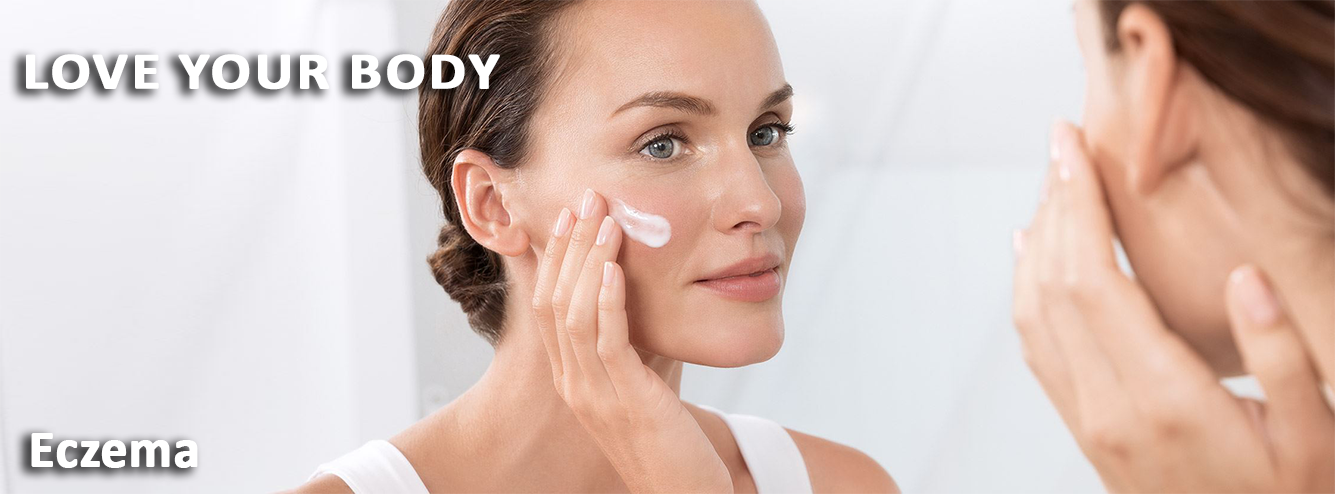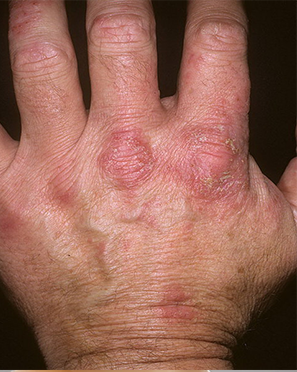

Different stages and types of eczema affect 31.6 percent of people in the United States. The word "eczema" is also used specifically to talk about atopic dermatitis, the most common type of eczema. "Atopic" refers to a collection of diseases involving the immune system, including atopic dermatitis, asthma, and hay fever. Dermatitis is an inflammation of the skin.
Some people outgrow the condition, while others will continue to have it throughout adulthood. This MNT Knowledge Center article will explain what eczema is and discuss the symptoms, causes, treatments, and types.

Certain foods can trigger symptoms, such as nuts and dairy. Symptoms vary according to the age of the person with eczema, but they often include scaly, itchy patches of skin. Eczema can also be triggered by environmental factors like smoke and pollen. However, eczema is not a curable condition. Treatment focuses on healing damaged skin and alleviating symptoms. There is not yet a full cure for eczema, but symptoms can be managed. Eczema is not a contagious condition.
The symptoms of atopic dermatitis can vary, depending on the age of the person with the condition. Atopic dermatitis commonly occurs in infants, with dry and scaly patches appearing on the skin. These patches are often intensely itchy. Most people develop atopic dermatitis before the age of 5 years. Half of those who develop the condition in childhood continue to have symptoms as an adult. However, these symptoms are often different to those experienced by children.
The symptoms of atopic dermatitis can vary, depending on the age of the person with the condition. Atopic dermatitis commonly occurs in infants, with dry and scaly patches appearing on the skin. These patches are often intensely itchy. Most people develop atopic dermatitis before the age of 5 years. Half of those who develop the condition in childhood continue to have symptoms as an adult. However, these symptoms are often different to those experienced by children.
There are numerous things that people with eczema can do to support skin health and alleviate symptoms, such as:
taking lukewarm baths,applying moisturizer within 3 minutes of bathing to "lock in" moisture,moisturizing every day ,wearing cotton and soft fabrics, and avoiding rough, scratchy fibers and tight-fitting clothing ,using a mild soap or a non-soap cleanser when washing ,air drying or gently patting skin dry with a towel, rather than rubbing the skin dry after bathing where possible, avoiding rapid changes of temperature and activities that make you sweat ,learning and avoiding individual eczema triggers ,using a humidifier in dry or cold weather ,keeping fingernails short to prevent scratching from breaking the skin
There are several medications that doctors can prescribe to treat the symptoms of eczema, including:
These are a type of anti-inflammatory medication and should relieve the main symptoms of eczema, such as skin inflammation and itchiness. They are applied directly to the skin. If you want to buy topical corticosteroid creams and ointments, then there is an excellent selection online with thousands of customer reviews
Antibiotics:These are prescribed if eczema occurs alongside a bacterial skin infection.
Antiviral and antifungal medications:These can treat fungal and viral infections that occur.